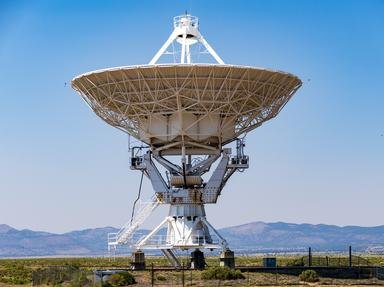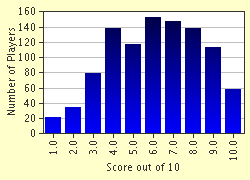Quiz Answer Key and Fun Facts
1. A significant outflow of charged particles, away from a star, is called:
2. A type of neutron star is called a:
3. Name the Jovian Planets.
4. Where do long term comets originate?
5. What of these is the largest object in the asteroid belt?
6. Spike-like columns of gas that jet out from the sun's chromosphere are called:
7. Stars live over 90 per cent of their lives as part of this stage. What is it?
8. What is the brightest star in the night sky?
9. This moon is the largest known satellite in our solar system. What is its name?
10. This unmanned space probe has visited all of the outer planets except Pluto. What was its name?
Source: Author
nickelodeon3
This quiz was reviewed by FunTrivia editor
rossian before going online.
Any errors found in FunTrivia content are routinely corrected through our feedback system.


